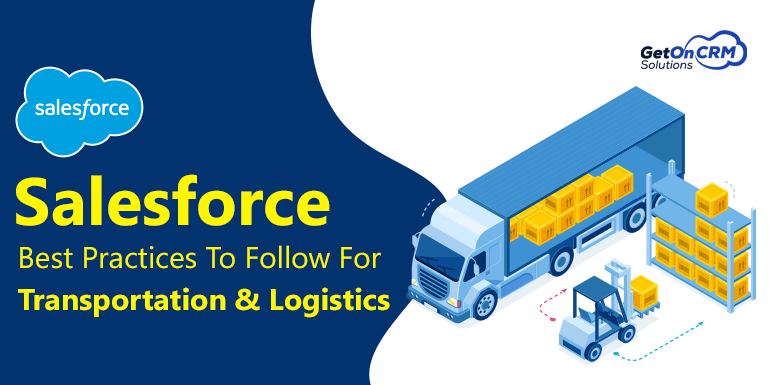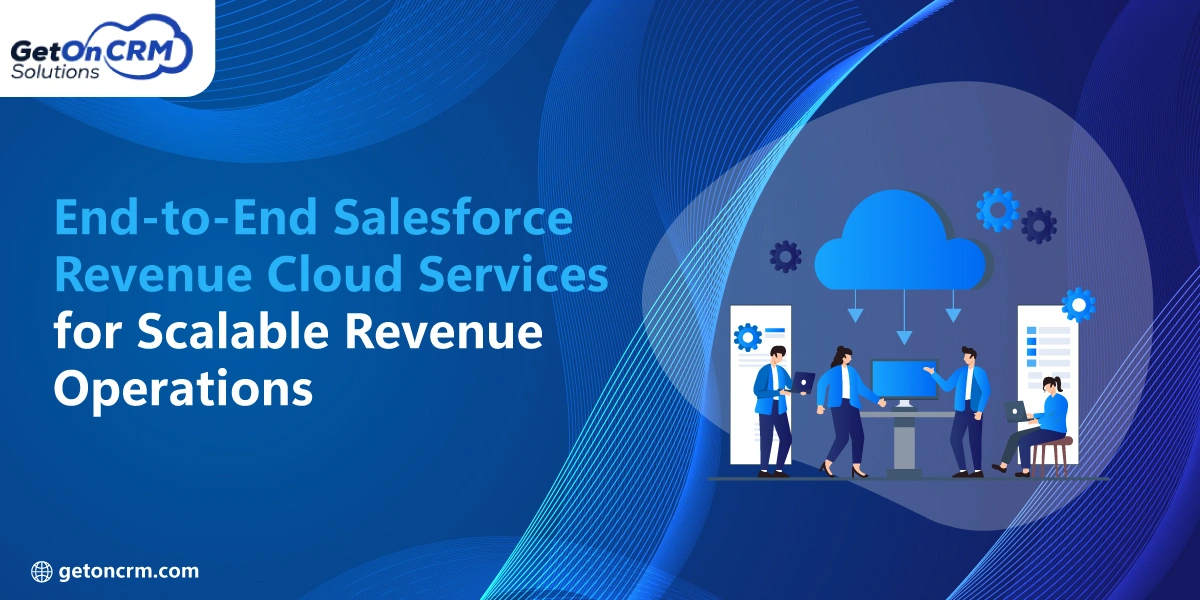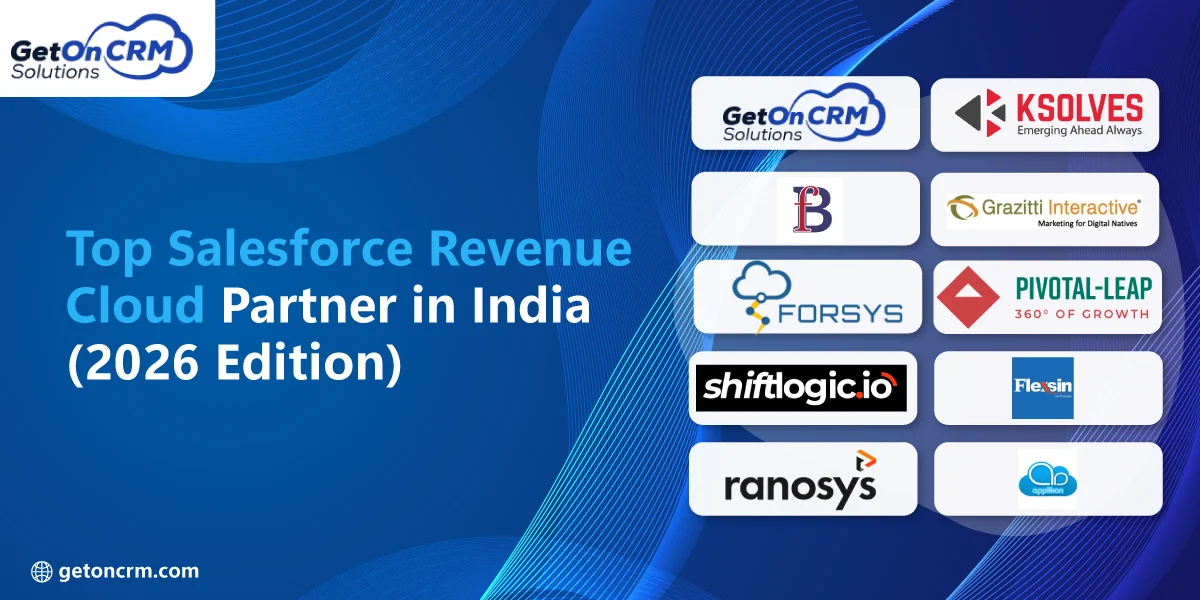The world is now taking a toll on digital transformation, where earning loyalty for the brand is of utmost importance. Getting customers’ trust is now challenging for almost all industries, including the transportation & logistics sector. As every business channels its service offerings through digital measures, the logistics sector intends to adopt that pathway to stay up to the trend.
Today, there is a disruption within the logistics, transport, and supply chains! Customers are putting up requests to get their products faster and safer. Not just that, but they are willing to get insight into the exact location of shipments while they are in transit. And with increased digitalization, it is now possible for the industry!
Companies within the transport, supply chain, and logistics industries are now altering their operations with technology. It is to maintain a position within the industry! Salesforce CRM is the technology that has made it possible for logistics and transportation businesses to communicate with their customers proficiently. Moreover, this technology also intends to develop the digital infrastructure of the businesses and help them monitor the operations efficiently.
There is more about the Salesforce implementation service and Logistics industry that you should know. And this article intends to help you out with the major knowledge of the concept.
Utilization of Salesforce CRM for the Logistics Industry
Salesforce is an ideal technology inclusion for any transportation or logistics company. It is because of the core functionality, which makes it is an outstanding solution for diverse purposes. With Salesforce, you can create a relationship, monitor the sales processes, and get more leads for the sales staff.
Salesforce for Logistics industry is accountable to help the businesses track their goods in real-time. Not just that, but you can also seek to transform the operations to make them more effective. It will optimize the product flow, reduce the delays, and balance the demand peaks to maximize the load factors.
Also read: Reasons Why Is Salesforce Required For Shipping And Logistics
With salesforce, you can enhance the client experience perspectives. It is designed so that the team can diagnose and address the problems before anything interrupts the transportation aspects. The staff uses Salesforce to earn customers’ trust by managing faster deliveries.
Best Practices of Salesforce for Transportation & Logistics Industry
Salesforce for the logistics industry is a trending implementation! It is one of the most committed technology platforms that assists its clients in developing customer-centered firms and attaining customer satisfaction. Therefore, some of the best practices of the Salesforce implementation service for the logistics and transportation industry are:
1. Change Management
Salesforce is accountable for converting the older IT systems without interfering with the key systems. The CRM platforms intend to allow the industry companies to modernize the supply networks. And then, agility is added to the complex processes while maintaining the core of the businesses.
2. Keeping track of Lead Time
Time management is an important aspect of the logistics industry, as online businesses have increased in the past few years. The customers are not in favour of repeating their orders from online businesses, which gave them a bad logistic experience. The Salesforce implementation service intends to help the logistics and transportation companies handle all records through one dashboard.
Hence, this will make things easy to keep track of the lead timing. It enables all businesses to handle their order and delivery time. All deliveries can now be managed proficiently through just one point with this process.
3. Customer Support Personalization
When you turn up to any Salesforce development company, they will advise you to prioritize customer support personalization service. Ideal customer support is also a key thriving element for logistics businesses. Therefore, using Salesforce CRM, you can coordinate data with perfection within the system.
Also read: How Salesforce Consulting Partner Can Help You?
It allows the professionals to handle logistics affairs and work effectively! With the customer support personalization, your staff can access all customer details. Hence, that makes it easy for the staff to get in touch with every customer to know their concerns and feedbacks for the logistics services. Personalized customer interaction is ideal for building better customer relationships and boosting confidence.
4. Predictive Insight
Salesforce, with the implementation of AI, helps obtain some predictive insights. Not just that, but it also draws useful data regarding both old and new clients. These insights and data are empowering sources for the sales team. It helps them find all of the best opportunities at the right time.
5. Team Collaboration
Salesforce CRM makes it easy for the business team to communicate. A ‘Chatter’ tool allows you to communicate with groups of individuals on all work-related topics. The team will have better-organized work execution and arrange the duties upon coordination. It will allow you to interact with more leads and close more sales with healthy co-operations.
Conclusion
Hence, these are a few of the best practices you can expect to include in your logistics business with Salesforce implementation. Every service feature that you get upon, including Salesforce, is somehow going to benefit your business by all means.
The transport and logistics businesses are booming in the present era, and Salesforce acts as an assisting technology to help it thrive. Therefore, it is time for you to look for the best Salesforce development company and take their assistance in including the technology in your logistics business services.
Frequently Asked Questions About Salesforce in Transportation & Logistics
What logistics problems can Salesforce solve?
It tackles issues like shipment tracking, fleet management, carrier integration, and real-time visibility, so all stakeholders see the same data.
How should you model data for transportation workflows?
Use custom objects for shipments, routes, vehicles, and tasks. Relate them to accounts and contacts for full customer context and traceability.
Should logistics firms integrate their TMS with Salesforce?
Yes — by syncing TMS and Salesforce, operations, sales, and customer service work off one system, avoiding duplicate entries and miscommunication.
How do logistics companies manage real-time updates in Salesforce?
Use APIs, event-driven architecture, and middleware to push updates on status changes, delays, or route deviations immediately to stakeholders.
What metrics should logistics teams monitor in Salesforce?
Track delivery times, on-time percentage, route efficiency, cost per shipment, and customer feedback. Dashboards help identify bottlenecks quickly.





















